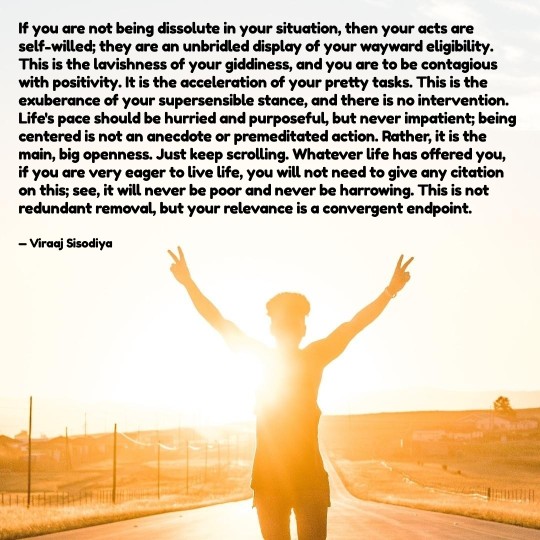#SELF_Will
Explore tagged Tumblr posts
Text

#Situation #Acts #Self_Willed #Eligibility #Positivity #YourQuote #Viraajsisodiya
0 notes
Text
1984
George Orwell, 1984
(repression and oppression in grim totalitarian future)
Bleak Prospects (nightmare scenarios for the future of human society)
Patrick White, A Fringe of Leaves ("civilised" woman in distress, rehabilitated by contact with aboriginal "primitive" people)
Ray Bradbury, Fahrenheit 451
Russell Hoban, Riddley Walker
Margaret Atwood, The Handmaid"s Tale (grim future: totalitarian, religious oppression, anti-women)
George Turner, The Sea and Summer
Paul Theroux, O-Zone (efforts to make a viable post-nuclear society in US wilderness)
Anthony Burgess, A Clockwork Orange (crime and class-war in future Britain)
Inner Hell (the nightmare is inside us)
Will Self, My Idea of Fun
William Golding, Lord of the Flies (choirboys lost on desert island revert to satanic evil, humanity"s dark side)
Georges Simenon, The Murderer (criminal psychologically destroyed by guilt)
Joseph Conrad, Heart of Darkness (wilderness as a satanic, engulfing force, human evil symbolised)
Fay Weldon, Life and Loves of a She-Devil (betrayed wife takes macabre, comic revenge)
The Ghastly Past (totalitarian, fundamentalist nightmares from "real" history)
Nathaniel Hawthorne, The Scarlet Letter (religious bigotry in Pilgrim Fathers America)
Willa Cather, Death Comes for the Archbishop (Catholic missionaries test their faith in 1870s Mexican wilderness)
Graham Greene, Brighton Rock (crime and redemption in 1930s England)
Alexander Solzhenitsyn, One Day in the Life of Ivan Denisovich (repression of dissidents in Stalinist labour-camp)
Maxim Gorky, Foma Gordeev (underbelly of Tsarist Russia in decline)
#PATHWAYS#ORWELL_George#1984#ATWOOD_Margaret#BRADBURY_Ray#BURGESS_Anthony#CATHER_Willa#CONRAD_Joseph#GOLDING_William#GORKY_Maxim#GREENE_Graham#HAWTHORNE_Nathaniel#HOBAN_Russell#SELF_Will#SIMENON_Georges#SOLZHENITSYN_Alexander#THEROUX_Paul#TURNER_George#WELDON_Fay#WHITE_Patrick
2 notes
·
View notes
Text
AMIS, Martin
British novelist (born 1949)
Amis' books are icily satirical, cold with rage at the physical and moral sleaziness of the human race. His characters' preoccupations are sex, food, money and success, and they are tormented by failure to win, or keep, all four. Ronald Firbank and F. Scott Fitzgerald found similar prancing emptiness in the 'gay young things' of the 1920s. Amis matches those writers' bilious wit, but adds a pungent view of his own: that the entire generation born after the creation of nuclear weapons is maimed beyond cure, a race of psychotic moral mutants. Few contemporary writers treat such repulsive subject-matter so dazzlingly. Amis' novels are fictional equivalents of the raunchiest post-punk, pop-horror videos-compulsively nasty, superbly hard to like.
MONEY (1984) This is the 'suicide note' of an obese, deranged and despairing film director, stumbling through a New York inferno of fast food, pornography, violence and moronic greed. He is a lunatic in a world gone mad; when he opens his mouth to scream, his voice is drowned in the megametropolitan carnival, the dance of death that is (for Amis, at least) contemporary America.
Amis' other novels are The Rachel Papers, Dead Babies, Other People, Success, Time's Arrow and The Information. The Moronic Inferno is a bilious travelogue about the US, a marvellously raw, non-fiction counterpart to Money. Einstein’s Monsters and Heavy Water contain short stories. Experience is a remarkable memoir, particularly affecting and moving (not words usually applied to Amis’s work) in its portrait of his relationship with his father, Kingsley Amis. War Against Cliché is a collection from thirty years of literary journalism. Koba the Dread is a curious and not very successful work of non-fiction in which an appalled account of Stalin’s career is mingled with Amis’s ongoing debate with his late father.
READ ON
London Fields (about a man in apocalypse-hurtling 1999 London trying to write a novel about a woman trying to arrange her murder by a slob of a man fantasizing about winning the world darts championship).
Iain Banks, The Wasp Factory Saul Bellow, Mr Sammler's Planet Terence Blacker, Fixx Celia Fremlin, The Trouble Makers Patricia Highsmith, The People Who Knock on the Door Jay McInerney, Model Behaviour Will Self, My Idea of Fun Elizabeth Peters, The Love Talker Vladimir Nabokov, Despair Madison Smartt Bell, The Year of Silence Josephine Tey, The Franchise Affair
more :Tags Pathways Themes & Places
#AUTHORS#AMIS_Martin#BANKS_Iain#BELLOW_Saul#BLACKER_Terence#FREMLIN_Celia#HIGHSMITH_Patricia#MCINERNEY_Jay#NABOKOV_Vladimir#PETERS_Elizabeth#SELF_Will#SMARTT_BELL_Madison#TEY_Josephine
0 notes